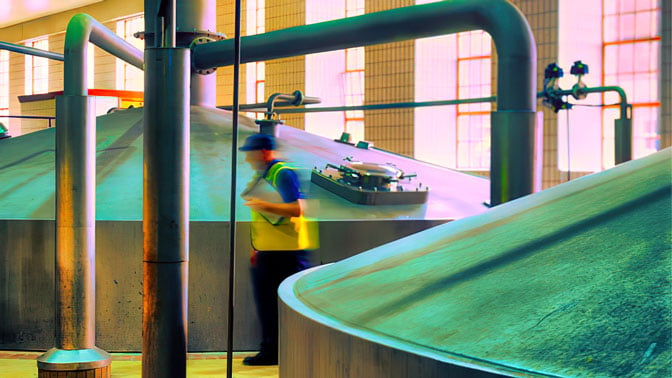This guest blog post was written by Tao Shen, a global product manager with Honeywell Process Solutions.
Finding the right control system for an industrial operation is a huge challenge. The longevity, expense and fundamental role the system plays in the plant’s productivity and profitability guarantee this.
Industrial organizations must maximize uptime, achieve high levels of reliability while controlling maintenance costs, and respond to challenges in terms of energy efficiency, regulatory compliance, and manufacturing agility. Any system must not just fit plant requirements today but accommodate growth and changes to the process or raw materials in future. Without this, sustainable growth is impossible.
As a result, a programmable logic controller (PLC) is likely to prove inadequate, with neither the control performance needed, nor flexibility to meet changing requirements. A distributed control system (DCS) offers significant advantages for modern industrial operations. To meet plant’s requirements and budget, however, it should be purpose-built for the industry and particular application needs.
I’d argue facilities need a control system that can demonstrate five key features:
- Proven, yet innovative technology;
- high levels of robustness;
- specific control applications tailored to the plant and industry;
- simplicity in configuration and use; and
- flexibility with the ability to scale.
It’s worth looking at each in turn.
Proven and innovative Solutions
The requirements for reliability and uptime argue strongly for proven solutions with stable, time-tested controller and I/O designs, as well as proven communication networks dedicated to the control mission. Innovation, however, can build on this to enhance reliability and performance and justify the decision to opt for a DCS over PLC.
This means communication networks that can deliver not only fault-tolerance but also the performance, determinism, and security required for industrial control; it means a more robust, versatile and deterministic control environment with features such as S88-compliant batch control; and it means distributed server architecture (DSA) that optimizes system integration.
The road to robustness
The increasing demand for reliability, safety and production yields can only be met if the DCS is highly robust. It must be designed to ensure the integrity of process data. This requires a high-performance and deterministic network, minimizing the downtime associated with servers, HMI and applications. Built-in redundancy is also required to mean there is no single point of failure, while a shared singular database across controllers and HMIs maintains global data consistency for greater usability and operability.
Any solution that aims to be robust, however, must also take account of users. An integrated station environment providing direct access to controllers is one way to promote a constant view and better control of the process. Lessons from the likes of the ASM® Consortium can also be incorporated to provide controls and instruction that promote better control and improved responses to abnormal conditions.
Industry-specific application requirements
Industrial sites’ requirements vary by sector, geography, size and countless other variables. Any standard design will inevitably either fail to meet requirements or result in a solution that is wasteful and over-engineered. A purpose-built DCS ensures unique plant needs are met affordably. It also has significant benefits in terms of efficiency and productivity.
Pre-built templates and built-in function block ensure relevant industry application needs are met, while accelerating implementation and quickly embedding operational best practices. This can be combined with development tools so users can still develop customized algorithms and applications they need and as their requirements change.
Simple solutions
Sophisticated process control and SCADA functionality does not add value if users are constantly battling complexity. Simplicity in approach will elevate automation performance without disrupting existing operations or changing normal work practices. Faster engineering, easier operation and lower life cycle costs should be the goals of the DCS.
This applies from that start, with configuration made simpler through standard display libraries providing ready-to-use, standardized objects to build ASM compliant customized displays. Pre-built equipment templates, likewise, simplify the initial project configuration, while bulk configuration tools can eliminate repetitive manual tasks and reduce system configuration.
These also reduce maintenance costs and efficiency in operation, through enabling exception based monitoring. A multi-level hierarchy and enabling one-click access to multiple windows, meanwhile, can enable an operator to evaluate and respond to abnormal situations faster and better.
The need for flexibility
Being able to decide the level of automation appropriate for a facility’s requirements while leaving scope for future expansion is among the biggest challenges of selecting a control system. The DCS should be as scalable as possible – ideally able to start from a single controller, engineering or operator station or server all residing in one PC or redundant pair of PCs. It should then be able to grow with the process.
Flexibility means more than being scalable in terms of size, however. Modern DSA also ensures separate DCS clusters can be independently installed and maintained, implementing control where operators need it. This provides flexibility for geographically distributed control areas or to accommodate different periods of construction.
Choosing the right control system is fundamental to developing a profitable business, and the advantages of a DCS over PLCs in this respect are well-established. Without a system that actually fits the operation and aligns with its needs, however, the benefits it can bring will be limited. Operators need to consider the needs of the plant as it is, and in the future, and how well the DCS is tailored to these at the outset. Only then can they be sure their journey to greater efficiency, reliability, productivity and profitability will begin on the right path.
About the Author Tao Shen is a global product manager with Honeywell Process Solutions. He has more than 15 years of experience in process monitoring, control and optimization in various roles from engineering to product management with experience on a number of different product platforms. Tao earned a Ph.D. degree in energy and power engineering from Huazhong University of Science and Technology in China and is a certificated Project Management Professional (PMP).
Tao Shen is a global product manager with Honeywell Process Solutions. He has more than 15 years of experience in process monitoring, control and optimization in various roles from engineering to product management with experience on a number of different product platforms. Tao earned a Ph.D. degree in energy and power engineering from Huazhong University of Science and Technology in China and is a certificated Project Management Professional (PMP).



